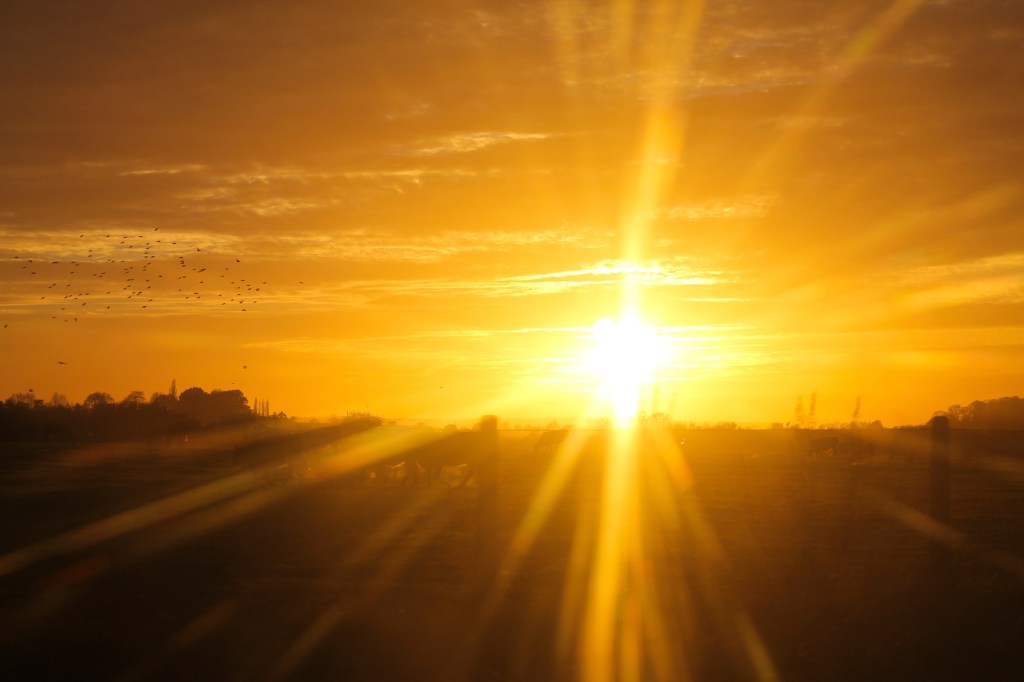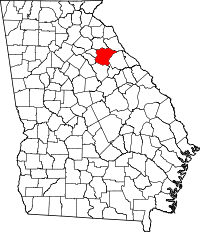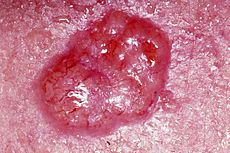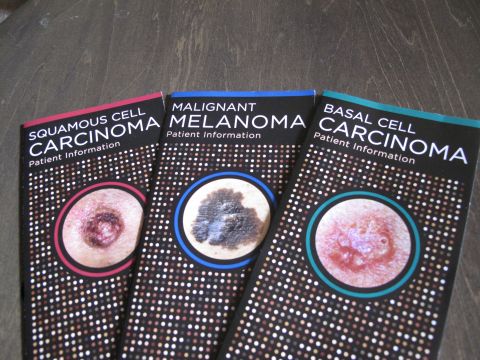Danny Sanders, who operates Oglethorpe Feed & Farm Supply, has been dealing with farmers and cattlemen in Oglethorpe County for more than 16 years. He’s seen them come and go with all sorts of injuries and ailments, including skin cancer.
“A couple of farmers that I knew had places burned off their skin” by doctors, Sanders says. “You know, for small skin cancers.”
People who work outdoors are at high risk for skin cancer related to sun exposure. Fortunately most of these cases are basal or squamous cell cancers that are not likely to cause serious harm.
But this year, an estimated 2,350 Georgians will be diagnosed with melanoma, a deadly malignancy that accounts for nearly 5 percent of newly identified cancers in Georgia. The melanoma rate in Georgia is 12.7 percent higher than the national average.
Although some people are genetically predisposed to develop skin cancers of one type or another, the most common risk factor is excessive sun exposure, which can cause mutations in skin cells, turning them into potential killers causing people to need special skin cancer treatments such as melanoma cancer treatment.
The simple act of applying sunscreen can significantly lower a person’s skin cancer risk, but not everyone does that.
Brandon Smith, a young farmer in Oglethorpe County, east of Athens, says he and his family do not use sunscreen. He frequently works outdoors all day, and he acknowledges that he sometimes gets sunburned. But he says, “I get used to it.”
Justin Armour, who’s employed by Georgia Poultry Equipment Company, says using sunscreen can pose practical problems for someone in his line of work. “If you wear lotion or sunscreen or whatever, you go into the dust in the chicken house, you come out and it’s all stuck to you,” says Armour.
Outdoor jobs raise the risk
Plenty of local residents work outside. There are more than 400 farms in the county, and in addition, nearly 15 percent of male workers are employed in the construction industry.
Although occupational exposure to solar ultraviolet (UV) radiation may be unavoidable, sunscreen isn’t the only protective option. At least one study of sun protection strategies among farmers showed they were more likely to employ a more traditional method — wearing hats and long-sleeved shirts — than to use sunscreen.
At the feed and seed store, “we usually order in about eight to 10 dozen straw hats a year,” says Sanders. “Besides farmers, I guess that people in the lawn care business, landscapers, anybody working outside during the summer will buy them.”
Hats and clothing do protect against the sun, but experts say a lot depends on how these garments are made and what they are made of.
Oglethorpe is a fairly small county, and when residents find a suspicious spot on their skin, they have to travel to reach a dermatologist.
“I would advise them to go to dermatology clinics in Athens, Watkinsville, or other counties,” says Dr. Linda Hueseman, a family medicine doctor at Crawford-Lexington Medical Center.
Children are usually dependent on their elders to shield them from excessive sun exposure. And it’s important that adults recognize the risk to children. Some studies indicate that frequent sunburns during childhood are a risk factor for skin cancers later in life.
“People apply sunscreen to their children mostly in the summer and when they are going to be exposed to the sun for prolonged periods of time,” says Lee Farris, the nurse manager for the Oglethorpe County Health Department, “although it is warm around here from spring and into the fall.”
If a kid doesn’t get sunscreen from parents, “we will provide it,” says Mary Brewer, a teacher at Oglethorpe Children’s Academy.
Fifteen years ago, the UGA Extension Service ran a campaign called “communicating skin cancer prevention messages to farm kids,” says Nancy Bridges, the Oglethorpe County Extension Agent for Family and Consumer Sciences. But no health communication program focusing on skin cancer has been conducted in recent years.
Whether health campaigns will change people’s skin protection behavior is another matter.
“People know what they should do but sometimes they don’t do what they should do, until they have problems,” says Sanders, the storekeeper. “Or they know somebody that has a lot of problems, and they’ll do something. I think it’s kind of human nature.”
Ruobing Han is a first-year master’s student in journalism at the University of Georgia. She is especially interested in vaccine promotion.





